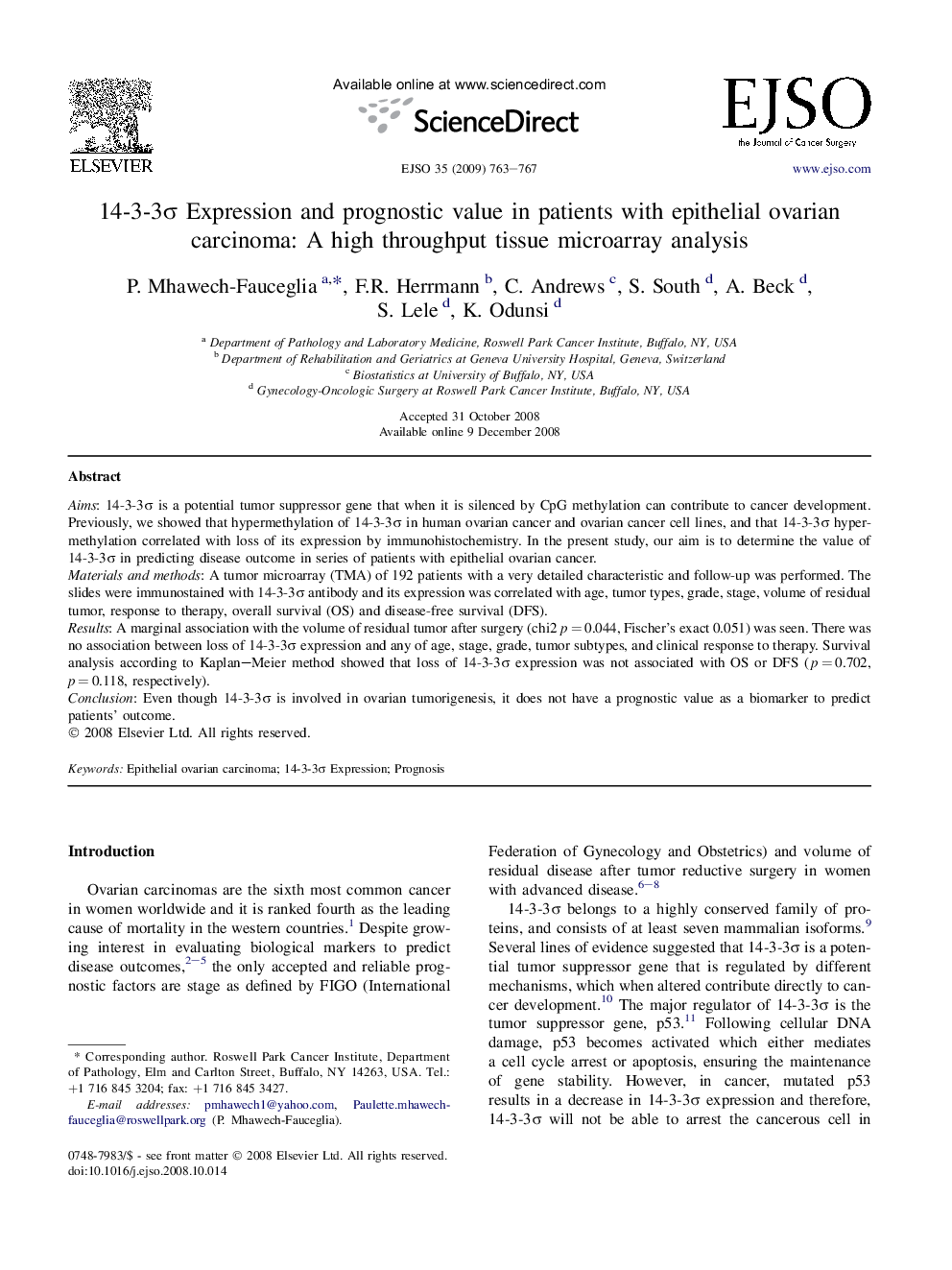| Article ID | Journal | Published Year | Pages | File Type |
|---|---|---|---|---|
| 3986841 | European Journal of Surgical Oncology (EJSO) | 2009 | 5 Pages |
Aims14-3-3σ is a potential tumor suppressor gene that when it is silenced by CpG methylation can contribute to cancer development. Previously, we showed that hypermethylation of 14-3-3σ in human ovarian cancer and ovarian cancer cell lines, and that 14-3-3σ hypermethylation correlated with loss of its expression by immunohistochemistry. In the present study, our aim is to determine the value of 14-3-3σ in predicting disease outcome in series of patients with epithelial ovarian cancer.Materials and methodsA tumor microarray (TMA) of 192 patients with a very detailed characteristic and follow-up was performed. The slides were immunostained with 14-3-3σ antibody and its expression was correlated with age, tumor types, grade, stage, volume of residual tumor, response to therapy, overall survival (OS) and disease-free survival (DFS).ResultsA marginal association with the volume of residual tumor after surgery (chi2 p = 0.044, Fischer's exact 0.051) was seen. There was no association between loss of 14-3-3σ expression and any of age, stage, grade, tumor subtypes, and clinical response to therapy. Survival analysis according to Kaplan–Meier method showed that loss of 14-3-3σ expression was not associated with OS or DFS (p = 0.702, p = 0.118, respectively).ConclusionEven though 14-3-3σ is involved in ovarian tumorigenesis, it does not have a prognostic value as a biomarker to predict patients' outcome.
